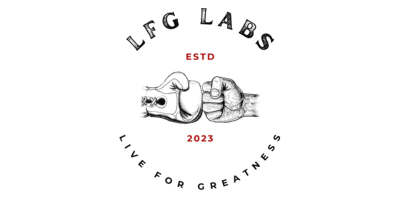The Benefits of Physiotherapy for Martial Artists
Martial arts demand not just skill and discipline but also physical resilience and agility. As practitioners engage in intense training and sparring sessions, they expose themselves to potential injuries and wear and tear on their bodies. This is where physiotherapy comes into play, offering numerous benefits tailored specifically for martial artists. Here’s a look at how physiotherapy can enhance performance, prevent injuries, and promote overall well-being in martial arts.
1. Injury Prevention
One of the primary benefits of physiotherapy is its focus on injury prevention. Through specialized assessments, physiotherapists can identify movement deficiencies and biomechanical imbalances that may lead to injuries. By addressing these issues through targeted exercises, martial artists can improve their overall body mechanics, making them less susceptible to injuries during training and competition.
Key Techniques:
- Movement Analysis: Identifying improper techniques that could lead to injuries.
- Strength Training: Tailored programs to enhance strength in vulnerable areas.
- Flexibility Programs: Stretching regimens to improve range of motion and prevent strains.
2. Rehabilitation from Injuries
In the unfortunate event of an injury, physiotherapy plays a critical role in recovery. A physiotherapist can create a personalized rehabilitation program that not only aids in healing but also ensures a safe return to training. This holistic approach can help martial artists recover faster and reduce the risk of re-injury.
Rehabilitation Strategies:
- Manual Therapy: Techniques like massage and mobilization to alleviate pain and promote healing.
- Exercise Therapy: Gradual reintroduction of movement to rebuild strength and stability.
- Education: Guidance on proper techniques and body mechanics during recovery.
3. Enhanced Performance
Physiotherapy isn’t just about injury prevention and rehabilitation; it also focuses on enhancing athletic performance. By working on flexibility, strength, and endurance, martial artists can achieve better overall performance. This is particularly important in martial arts, where agility and quick reflexes are vital.
Performance Enhancement Techniques:
- Functional Training: Exercises that mimic martial arts movements to improve specific skills.
- Balance and Coordination Drills: To enhance overall agility and reflexes.
- Conditioning Programs: Tailored fitness routines to boost stamina and endurance.
4. Pain Management
Chronic pain can be a significant barrier to training and performance. Physiotherapy offers various pain management techniques, allowing martial artists to train effectively while minimizing discomfort. This might include modalities like ultrasound therapy, electrical stimulation, or dry needling, all aimed at reducing pain and inflammation.
Pain Management Approaches:
- Therapeutic Modalities: Use of heat, ice, and other treatments to manage pain.
- Education and Self-Management: Techniques to manage pain and discomfort outside of sessions.
5. Improved Recovery Times
After intense training sessions or competitions, the body needs time to recover. Physiotherapy can aid in speeding up recovery times through targeted treatment techniques, allowing martial artists to return to training sooner and with less fatigue.
Recovery Techniques:
- Sports Massage: Helps reduce muscle tension and enhance blood circulation.
- Active Recovery Programs: Gentle exercises that promote recovery without strain.
6. Mental Well-Being
The benefits of physiotherapy extend beyond the physical. Martial artists often face mental challenges, including anxiety before competitions or pressure during training. A physiotherapist can provide mental conditioning strategies and relaxation techniques, contributing to a balanced mental state that enhances performance.
Mental Well-Being Strategies:
- Mindfulness Techniques: Strategies to enhance focus and mental clarity.
- Breathing Exercises: To reduce anxiety and promote relaxation.
Physiotherapy offers a comprehensive approach that can significantly benefit martial artists, from preventing injuries to enhancing performance and aiding recovery. By integrating physiotherapy into their training regimen, martial artists can ensure they stay in peak condition, ready to face the challenges of their sport. Whether you’re a seasoned fighter or just starting, consider partnering with a physiotherapist to optimize your training and achieve your martial arts goals.

